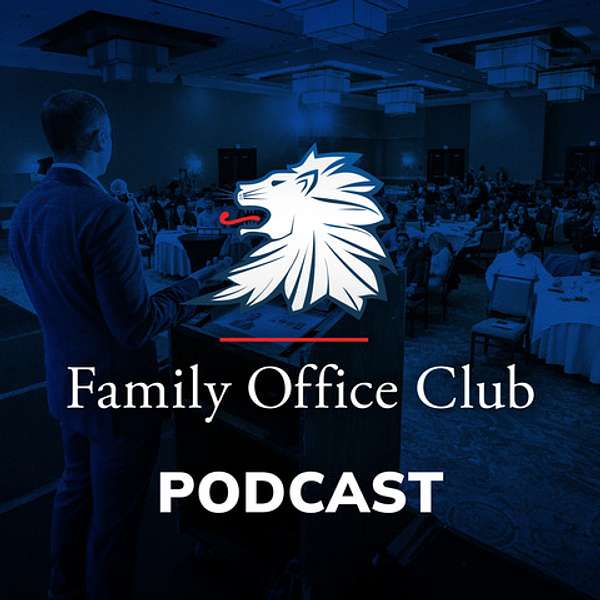
Family Office Podcast: Billionaire & Centimillionaire Interviews & Investor Club Insights
The Family Office Podcast released 3-7 episodes a week of interview mandate interviews, private investor strategies, innovative investment structures, and wealth management related insights.
We use this podcast to interview billionaires, centimillionaires, investors, and family offices and help founders, entrepreneurs and investors scale their platforms and invest more effectively.If you are looking to grow your business, get sharper at investing and scale you are in the right place.
Our program provides investors with insights on setting up their own single family office, virtual family office, or selection of a multi-family office to help them manage their wealth.
We cover private equity, real estate, income investments, commercial real estate, hard money lending, private loans, and innovative structures such as performance-fee only and Co-GP investment opportunities.
The Family Office Club has over 7,500 registered investors and our online investor community has over 700 recorded investor mandates, with a normal 15 live events hosted a year with 6,500 participants at those live events.
To learn more please visit http://FamilyOffices.com or text (305) 333-1155
Family Office Podcast: Billionaire & Centimillionaire Interviews & Investor Club Insights
Building & Selling a Business: Operational Efficiencies, AI, and Timing the Market
In this episode, Tracy shares her journey of growing a business from $40 million to $200 million and the strategic decision-making behind selling at the right time. She discusses the importance of recognizing market conditions, operational efficiencies, and leveraging AI to increase company value. Tracy also offers invaluable advice for families with private equity holdings, stressing the need to focus on cash flow, profitability, and long-term growth. She emphasizes how finding operational improvements can lead to better returns and why timing the market plays a crucial role in business success.
-----------------------------------------------------------------------------------------------------------------
I founded the Family Office Club 18 years ago—now with 20 team members, over 1,000 active investors, and 22 events annually. We’ve built over 50 AI tools using data from 300 events. Event calendar: https://familyoffices.com/
Ways to join: https://familyoffices.com/join/
Our most popular YouTube series covers capital raising, investor strategies, and billionaire interviews on Billionaires.com.
Want free resources or one of my books on investing, family offices, or raising capital? Just ask.
Richard@FamilyOffices.com | Text/WhatsApp: (808) 600-9260
- Tracy, having built a business from 40 million, you mentioned from 40 million to
200, and then deciding to sell, what were kind of some of the decisions? Why now?
I mean, there may have been business decisions that made that, but was there any
overriding thought process around valuations, marketing in general that kind of
prompted that, or?
You know, as the previous panel was talking, when it's hot, you got to jump, and
so we had the Carlisle, so my company was owned by Warburg Pincus first,
and then we grew to from under 40 to over 100 million, and the Carlisle group came
in, and we had another private equity group come in because of an acquisition that
we had done, and it was the hot market, it was the right time, But it was such a
great asset that Warburg -Pingas didn't want to just give it up completely, so they
continued on. So I completed my term. You know how you get golden handcuffs?
Mine came off at the end of last year. So my sweet spot is actually growing mid
-market companies into larger ones. So the company, I'm still invested in it, but
it's still running. So we're holding longer. This is why I was talking about the
longer hold. So we're looking at how can we leverage a lot of our operational
efficiencies, how we're using AI in it in order to be able to gain that premium
multiple, but I expect we'll be selling soon. Any particular advice you'd pass along
to some of the families here who might have private equity holdings, they're not so
sure about them, write it out, or in general, what were some great lessons that you
learned from that? I think the great lessons that we learned is that there's always
operational efficiencies that you can find. You just have to go and look for them.
And that is a way that, you know, you were just talking about, right? You need to
have great cash flow. You need to be looking at how are you going to be able to
ensure that you've got good profitability. Look for those. And I think it's worth if
you hang on just a little bit longer and find those that you'll get a better
return.